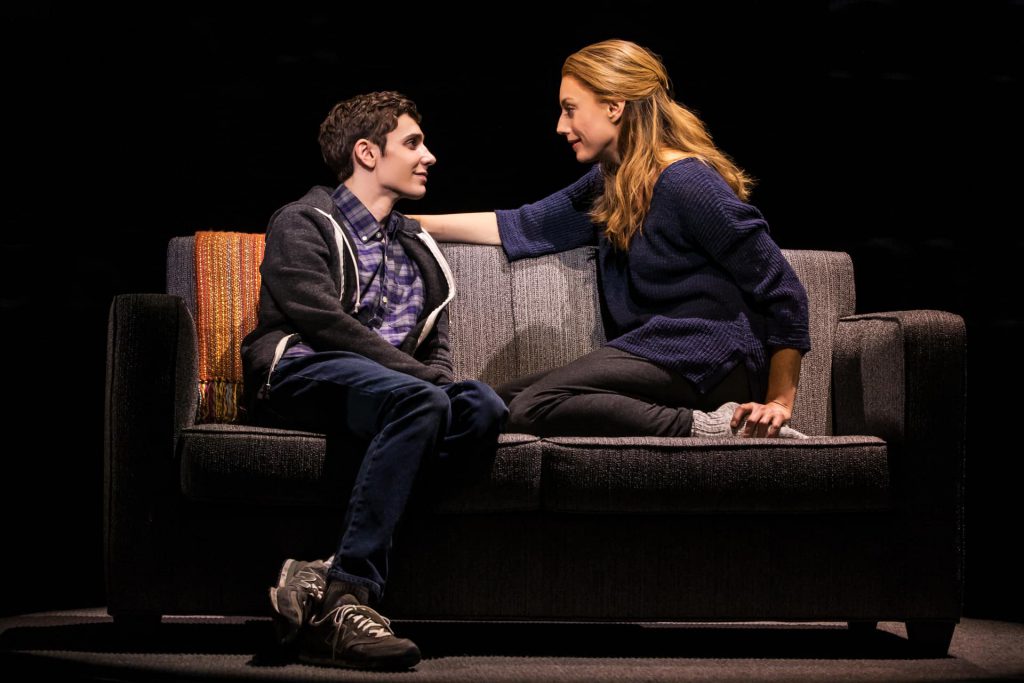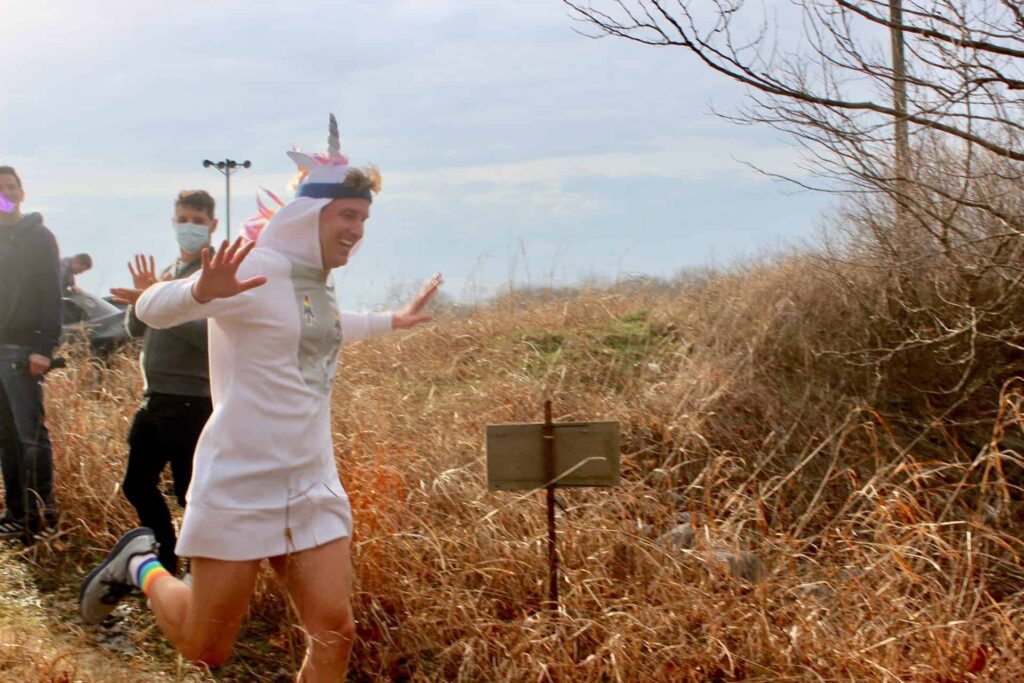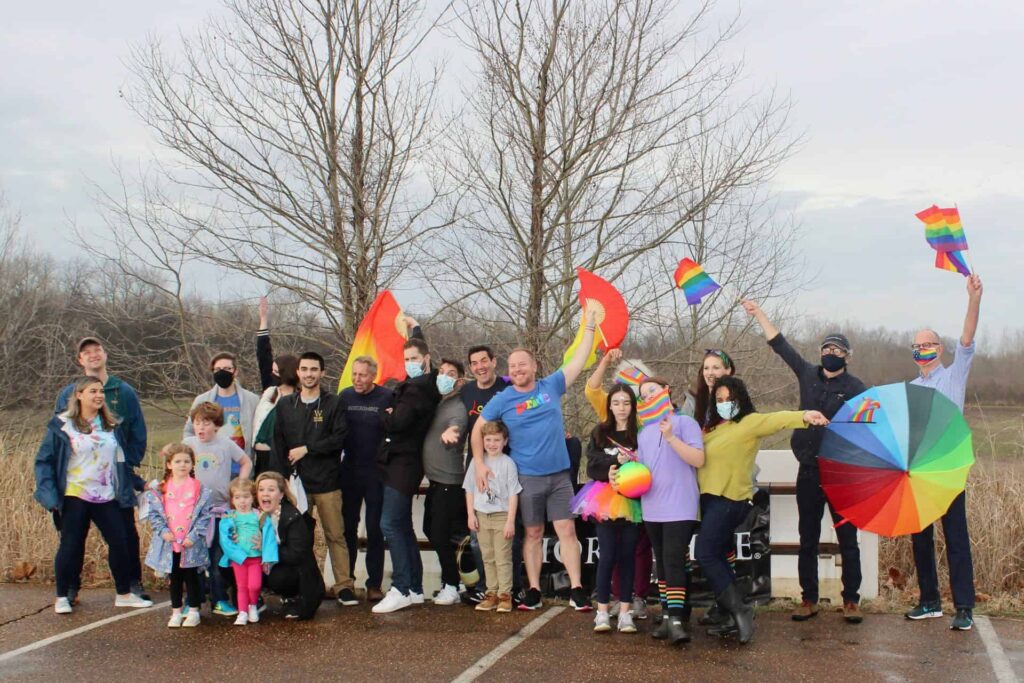story and photos by Allen Brewer
A long eventful journey came to a close near the Mississippi River. Mikah Meyer, a gay travel
writer from Minnesota, reached the finished line behind the Horseshoe Casino after running the entire February across North Mississippi. Bigotry, angry dogs and six-inches of snow stood in his way but failed to keep him from reaching his goal.
Meyer ran to spread awareness for Outdoor Safe Spaces, a campaign for making outdoor and
rural areas more accessible for people who identify as LGBTQ+.
“Representation is very important, but, at the end of the day, you need the people with the
privilege and the power to be able to stand up for the people who don’t,” Meyer said. “The
Outdoor Safe Space program and symbol is a really easy way for people with power and
privilege to make a difference in the lives of queer people.”
Meyer started this campaign last year by running across Minnesota. The campaign went so well
that he decided to host another run in the state his social media followers voted most hostile
toward the LGBTQ+ community.
Filmmaker Derek Dodge, who directed a documentary about racer Hurley Haywood, followed
Meyer’s journey. He hoped to turn their footage into a documentary that will be picked up by
Netflix.
The team originally reached out to Visit Mississippi for travel recommendations but did not
receive a response. As a former University of Memphis student, Meyer had some connections in Mississippi and used friends and contacts within the North Mississippi Rotary Club for
assistance.
Meyer started at Tremont, Ala., and ran 32 miles to Tupelo, Miss., the birthplace of Elvis Presley
and rock ‘n’ roll. To commemorate this moment, Meyer dressed as the King while listening to
The Wonder of You: Elvis Presley with the Royal Philharmonic Orchestra.
“Everyone was honking, smiling, waving and taking pictures,” Meyer said. “It was such a
powerful, magical experience while getting to listen to his music that I had been listening to for
years in my apartment, and now I am where he took his first steps.”



The film crew, however, was reprimanded at Elvis Presley Birthplace by a staff member who did
not want the crew to take pictures. The executive director of the facility eventually relented that
he could not legally tell them to stop filming.
“As I told their executive director, if the documentary that is being made about my journey gets
picked up by Netflix, it could be seen by 10 million people,” Meyer said. “They could have had a
very positive experience at Elvis’ birthplace, but now what they are going to see is a video of
their employee yelling at me while vaping with a mask under her chin.”
The team continued toward Oxford, Miss., dodging an angry dog on Hwy. 278. After running the 60 miles to Oxford, the weather had begun to turn. The crew had to stay put for a few extra days, which allowed Meyer to get extra photos taken at The University of Mississippi, and to talk to the local Rotary Club.
During his first talk with the Oxford Rotary Club, Meyer said that his presentation was going
well until he mentioned he was a gay man running for an LGBTQ+ cause. Once the members
heard this, Meyer said that a third of the smiles in the crowd turned into frowns.
“It is disheartening to realize that these are the leaders of every community…,” Myer said about
the Rotary Club, which has a worldwide presence. “It made me feel really bad for the queer
people of Mississippi that these are their community leaders and that it elicited that kind of
reaction.”
This did not deter him from his goal. As he ran out of Oxford dressed in a unicorn onesie, he
received several encouraging words and honks from people on Jackson Avenue. A Facebook
post of him was even reposted by the Oxford Police Department.
The final 78 mile stretch of his journey was reported without incident. As he circled the
Horseshoe Casino in Tunica, Miss., a small crowd of fans and supporters greeted him with
rainbow flags.
As Meyer recounted on his trip, he noted that the results of his trip were a bit of a mixed bag. “It has been cool to be here with some of my crew and everyone on multiple occasions has
commented on how beautiful it (Mississippi) was,” Meyer said. “It has been unfortunate to see
the reality of queer people’s lives down here … I think what is hard for us is meeting local queer
folk and hearing how their lives are so different (from people in Minnesota).”
While his run has ended, a new chapter of his journey has just begun. Meyer said he was
planning to go to Jackson, Miss., to talk to local LGBTQ+ groups and state officials. Once the
documentary is finished, he also hopes it will be entered into OUTflix Film Festival in Memphis,
or possibly a film festival in Mississippi.



